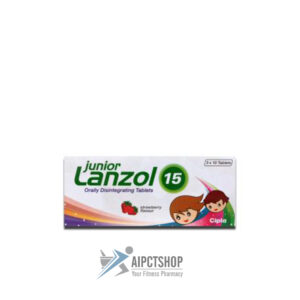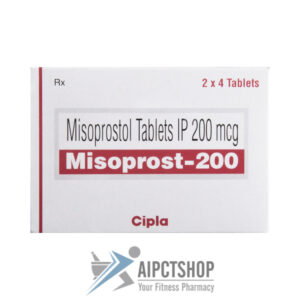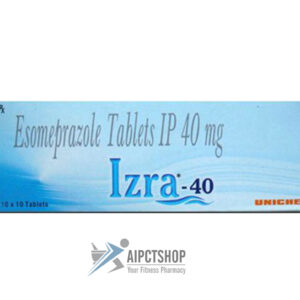Prilosec Information
Prescription omeprazole is used alone or with other medications to treat gastroesophageal reflux disease (GERD), a condition in which backward flow of acid from the stomach causes heartburn and possible injury of the esophagus (the tube between the throat and stomach). Prescription omeprazole is used to treat the symptoms of GERD, allow the esophagus to heal, and prevent further damage to the esophagus. Prescription omeprazole is also used to treat conditions in which the stomach produces too much acid such as Zollinger-Ellison syndrome. Prescription omeprazole is also used to treat ulcers (sores in the lining of the stomach or intestine) and it is also used with other medications to treat and prevent the return of ulcers caused by a certain type of bacteria (H. pylori). Nonprescription (over-the-counter) omeprazole is used to treat frequent heartburn (heartburn that occurs at least 2 or more days a week). Omeprazole is in a class of medications called proton-pump in
hibitors. It works by decreasing the amount of acid made in the stomach.
Usage directions
Prescription omeprazole comes as a delayed-release capsule, and packets of delayed-release (long-acting) granules for suspension (to be mixed with liquid) to take by mouth. Nonprescription (over-the-counter) omeprazole comes as a delayed-release capsule or tablet to take by mouth. The delayed-release capsules and the granules should be taken at least 1 hour before a meal. They are usually taken once a day before a meal but may be taken twice a day when used with other medications to eliminate H. pylori, or up to three times a day when used to treat conditions in which the stomach produces too much acid. The nonprescription delayed-release tablets or capsules are usually taken once a day in the morning at least 1 hour before eating for 14 days in a row. Additional 14-day treatments may be repeated once every 4 months if needed. To help you remember to take omeprazole, take it at around the same time(s) every day. Follow the directions on your prescription label or the
package label carefully, and ask your doctor or pharmacist to explain any part you do not understand. Take omeprazole exactly as directed. Do not take more or less of it or take it more often or for a longer period of time than prescribed by your doctor or stated on the package. Tell your doctor if you have taken nonprescription omeprazole for a longer period of time than stated on the package.
If you are taking the delayed-release tablets, swallow them whole with a full glass of water. Do not split, chew, or crush them or crush and mix them into food.
Swallow the delayed-release capsules whole. If you have difficulty swallowing the delayed-release capsules, place one tablespoon of soft, cool applesauce in an empty bowl. Open the delayed-release capsule and carefully empty all the granules inside the capsule onto the applesauce. Mix the granules with the applesauce and swallow the mixture immediately with a glass of cool water. Do not chew or crush the granules. Do not store the applesauce/granule mixture for future use.
If you are taking the powder for oral suspension, you will need to mix it with water before use. If you are using the 2.5-mg packet, place 1 teaspoonful (5 mL) of water in a container. If you are using the 10-mg packet, place 1 tablespoonful (15 mL) of water in a container. Add the contents of the powder packet and stir. Wait 2 to 3 minutes to allow the mixture to thicken, and stir the mixture again. Drink the entire mixture within 30 minutes. If any of the mixture is stuck to the container, pour more water into the container, stir and drink all the mixture immediately.
The powder and the contents of the prescription delayed-release capsules can both be given through a feeding tube. If you have a feeding tube, ask your doctor how you should take the medication. Follow the directions carefully.
Do not take nonprescription omeprazole for immediate relief of heartburn symptoms. It may take 1 to 4 days for you to feel the full benefit of the medication. Call your doctor if your symptoms get worse or do not improve after 14 days or if your symptoms return sooner than 4 months after you finish your treatment. Do not take nonprescription omeprazole for longer than 14 days or treat yourself with omeprazole more often than once every 4 months without talking to your doctor.
Continue to take omeprazole even if you feel well. Do not stop taking prescription omeprazole without talking to your doctor. If your condition does not improve or gets worse, call your doctor.
Ask your pharmacist or doctor for a copy of the manufacturer’s information for the patient.
Other uses
This medication may be prescribed for other uses; ask your doctor or pharmacist for more information.
Special precautions
Before taking omeprazole,
-
- tell your doctor and pharmacist if you are allergic to omeprazole, dexlansoprazole (Dexilant), esomeprazole (Nexium), lansoprazole (Prevacid), pantoprazole (Protonix), rabeprazole (Aciphex), any other medications, or any of the ingredients in the omeprazole product you will be taking. Ask your pharmacist or check the package label for a list of the ingredients.
- tell your doctor and pharmacist what prescription and nonprescription medications, vitamins, nutritional supplements, and herbal products you are taking or plan to take. Be sure to mention any of the following: certain antibiotics, including ampicillin (Principen, in Unasyn);anticoagulants (‘blood thinners’) such as warfarin (Coumadin); atazanavir (Reyataz); benzodiazepines such as diazepam (Valium); cilostazol (Pletal); clopidogrel (Plavix); cyclosporine (Neoral, Sandimmune); digoxin (Lanoxicaps, Lanoxin) disulfiram (Antabuse); diuretics (‘water pills’); iron supplements; ketoconazole (Nizoral); methotrexate (Rheumatrex, Trexall), nelfinavir (Viracept); phenytoin (Dilantin); saquinavir (Invirase); tacrolimus (Prograf); and voriconazole (Vfend) and other prescription antifungal or anti-yeast medications. Your doctor may need to change the doses of your medications or monitor you carefully for side effects.
- if you plan to take nonprescription omeprazole, tell your doctor if your heartburn has lasted 3 months or longer or if you have experienced any of the following symptoms: lightheadedness, sweating, or dizziness along with your heartburn; chest pain or shoulder pain; shortness of breath or wheezing; pain that spreads to your arms, neck, or shoulders; unexplained weight loss; nausea; vomiting, especially if the vomit is bloody; stomach pain; difficulty swallowing food or pain when you swallow food; or black or bloody stools. You may have a more serious condition that cannot be treated with nonprescription medication.
- tell your doctor if you are of Asian descent and if you have or have ever had a low level of magnesium in your blood or liver disease.
if you are 50 years of age or older, ask your doctor if it is safe for you to take nonprescription or prescription omeprazole. The risk that you may develop a severe form of diarrhea caused by bacteria or that you may fracture your wrist, hip, or spine may be higher if you are an older adult.
- tell your doctor if you are pregnant, plan to become pregnant, or are breast-feeding. If you become pregnant while taking omeprazole, call your doctor.
Food limitations and special diet when taking Omeprazole
Unless your doctor tells you otherwise, continue your normal diet.
Missed dose
Take the missed dose as soon as you remember it. However, if it is almost time for the next dose, skip the missed dose and continue your regular dosing schedule. Do not take a double dose to make up for a missed one.
Possible side effects
Omeprazole may cause side effects. Tell your doctor if any of these symptoms are severe or do not go away:
- constipation
- gas
- nausea
- vomiting
- headache
Some side effects can be serious. If you experience any of these symptoms, call your doctor immediately, or get emergency medical help:
- rash
- hives
- itching
- swelling of the face, throat, tongue, lips, eyes, hands, feet, ankles, or lower legs
- difficulty breathing or swallowing
- hoarseness
- irregular, fast, or pounding heartbeat
- excessive tiredness
- dizziness
- lightheadedness
- muscle spasms
- uncontrollable shaking of a part of the body
- seizures
- diarrhea with watery stools
- stomach pain
- fever
People who take proton pump inhibitors such as omeprazole may be more likely to fracture their wrists, hips, or spine than people who do not take one of these medications. The risk is highest in people who take high doses of one of these medications or take them for one year or longer.
Some people who take omeprazole for a long time may develop weakening of the stomach lining.
Talk to your doctor about the risks of taking omeprazole.
Omeprazole may cause other side effects. Call your doctor if you have any unusual problems while taking this medication.
Storage and disposal of Omeprazole
Keep this medication in the container it came in, tightly closed, and out of reach of children. Store it at room temperature and away from light, excess heat, and moisture (not in the bathroom). Throw away any medication that is outdated or no longer needed. Talk to your pharmacist about the proper disposal of your medication.
Emergency/overdose
In case of overdose, call your local poison control center. If the victim has collapsed or is not breathing, call local emergency services.
Symptoms of overdose may include the following:
- confusion
- drowsiness
- blurred vision
- fast or pounding heartbeat
- nausea
- vomiting
- sweating
- flushing (feeling of warmth)
- headache
- dry mouth
Other important information
Keep all appointments with your doctor and the laboratory. Your doctor may order certain laboratory tests before and during your treatment, especially if you have severe diarrhea.
Do not let anyone else take your medication. If you are taking prescription omeprazole, ask your pharmacist any questions you have about refilling your prescription.
It is important for you to keep a written list of all of the prescription and nonprescription (over-the-counter) medicines you are taking, as well as any products such as vitamins, minerals, or other dietary supplements. You should bring this list with you each time you visit a doctor or if you are admitted to a hospital. It is also important information to carry with you in case of emergencies.
Disclaimer
We provide only general information about Prilosec which does not cover all possible drug integrations, directions or precautions. Information at our website cannot be used for self-treatment and self-diagnosis. Any specific instructions for a particular patient should be agreed with his health care adviser or doctor in charge of the case. We disclaim reliability of this information and mistakes it could contain. We are not responsible for any direct, indirect, special or other indirect damage as a result of any use of the information on this site and also for consequences of self-treatment.








